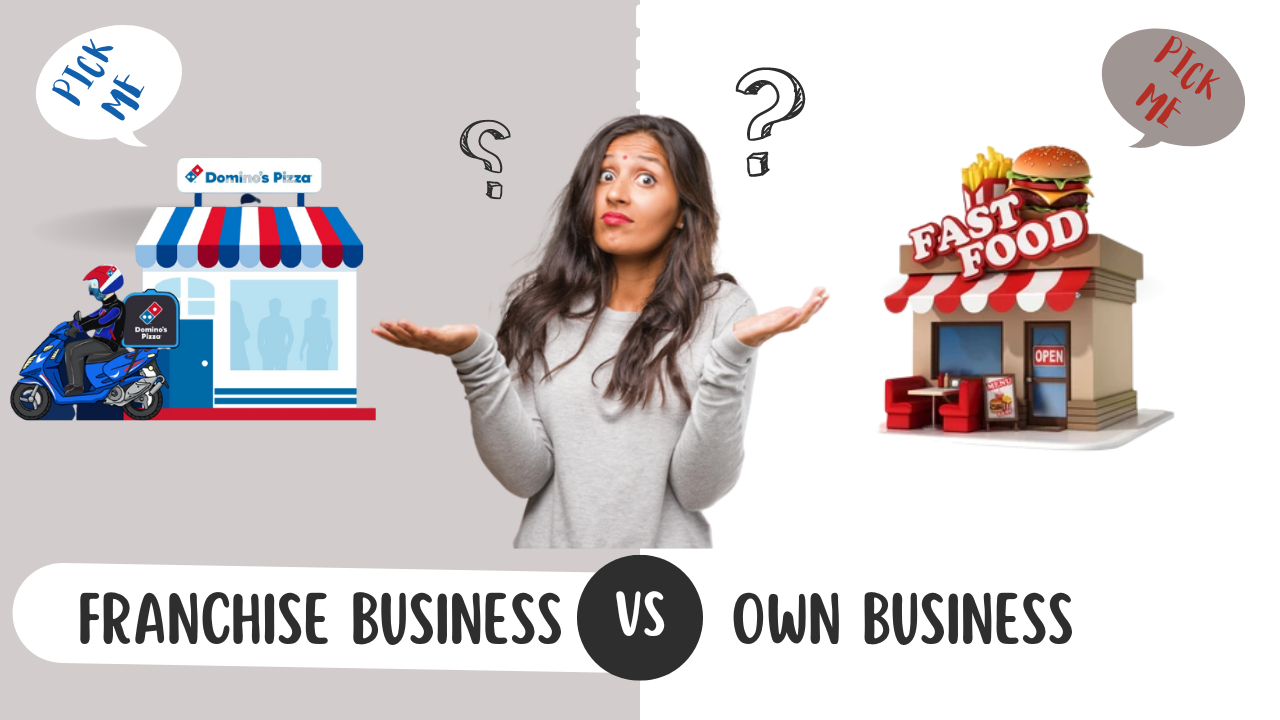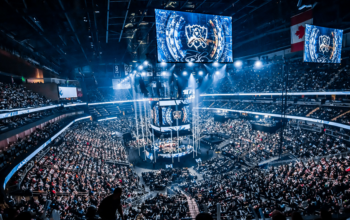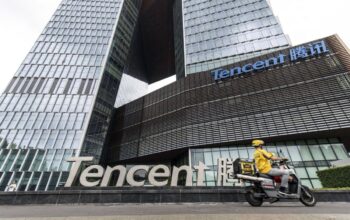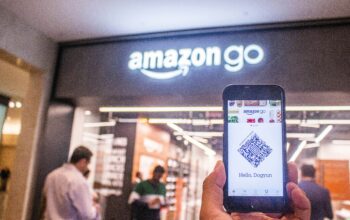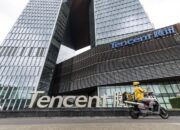In the world of entrepreneurship, one of the most common dilemmas aspiring business owners face is whether to buy a franchise or to start their own business from scratch. Both options offer distinct advantages and challenges, and understanding the key differences between them can help you make a more informed decision. In this article, we will compare the pros and cons of both franchise ownership and starting a business on your own, focusing on crucial factors such as investment costs, control, risks, and potential for growth business success.
What is a Franchise?
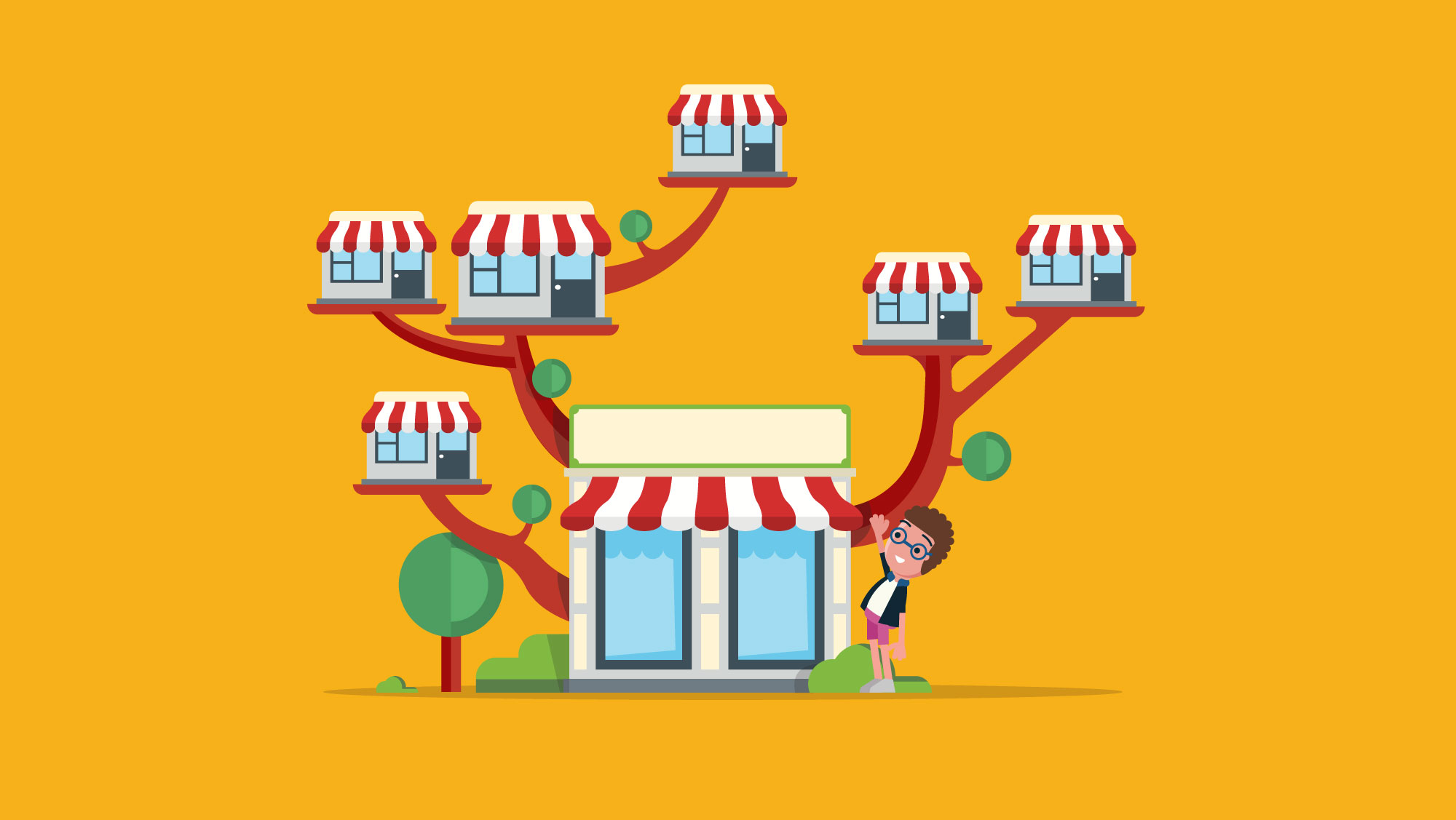
A franchise is a business model where a franchisor (the original business owner) allows an individual (franchisee) to operate a branch of their business using the franchisor’s brand, products, and business system. In exchange for these rights, the franchisee typically pays an upfront franchise fee and ongoing royalty payments based on a percentage of their revenue.
Key Features of a Franchise:
- Established Brand Recognition: Franchisees get to operate under a well-known brand, which can immediately attract customers.
- Proven Business Model: Franchises come with a tested and successful business system, reducing the risk of failure.
- Training and Support: Franchisors provide extensive training, marketing materials, and operational support.
- Standardized Operations: Franchisees follow a clear set of procedures to ensure consistency across locations.
What is Starting Your Own Business?

Starting your own business means building a new company from the ground up, without relying on an established brand or pre-existing business model. Entrepreneurs starting their own business have full autonomy over all aspects, from product development to brand strategy.
Key Features of Starting Your Own Business:
- Full Control: Entrepreneurs have complete control over all decisions, from business direction to brand identity.
- Creative Freedom: Starting from scratch allows for unlimited creativity in developing unique products or services.
- Flexibility: Entrepreneurs have the freedom to pivot, innovate, and adapt their business model as needed.
- Higher Risk: Starting a new business involves significant uncertainty and a higher likelihood of failure due to the lack of a proven track record.
Franchise vs. Starting Your Own Business: Pros and Cons
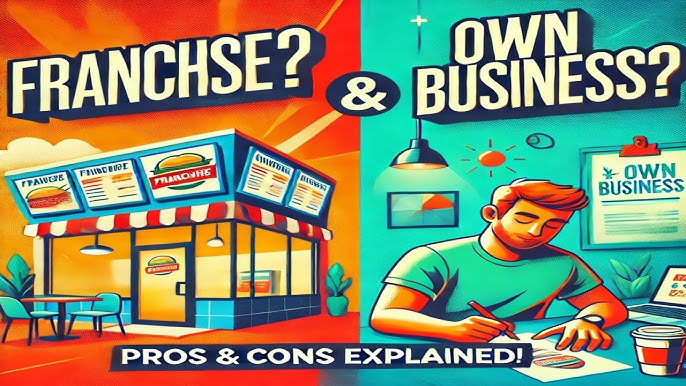
A. Investment & Costs
- Franchise:
- Upfront Fees: Franchisees pay an initial franchise fee, along with costs for equipment, supplies, and location setup.
- Ongoing Royalties: Franchisees must pay royalties, typically a percentage of sales, and may incur additional marketing or software fees.
- Financing: Many franchises offer financing assistance or have established relationships with lenders, making it easier to secure funding.
- Starting Your Own Business:
- Initial Investment: The cost of starting your own business varies greatly depending on industry and concept. While there are no franchise fees, you still need to budget for branding, product development, equipment, and a location.
- Ongoing Expenses: You will be responsible for your own marketing, operations, and employee salaries without the support of an established system.
- Financing: Securing financing for an independent business can be more challenging, as investors and banks may prefer to fund businesses with a proven track record.
Investment Pros & Cons:
- Franchise offers a proven system with brand recognition but comes with higher upfront costs and ongoing royalty fees.
- Starting your own business generally requires lower initial costs but carries a higher risk due to the lack of an established business model.
B. Control & Flexibility
- Franchise:
- Limited Control: Franchisees must adhere to the franchisor’s established systems, policies, and procedures, limiting their ability to innovate or make significant changes.
- Brand Restrictions: Franchisees are required to use the franchisor’s logo, product line, and marketing strategies, leaving little room for creating a unique brand.
- Starting Your Own Business:
- Complete Control: Entrepreneurs have full control over every aspect of the business, from the products offered to marketing strategies.
- Creative Freedom: Entrepreneurs can adapt and innovate, developing new products, services, and business strategies without restriction.
Control Pros & Cons:
- While franchise offers a tested formula, it limits the flexibility to adapt to market changes or create a distinct brand identity.
- Starting your own business gives full control, but it also requires more time and effort to make decisions and innovate effectively.
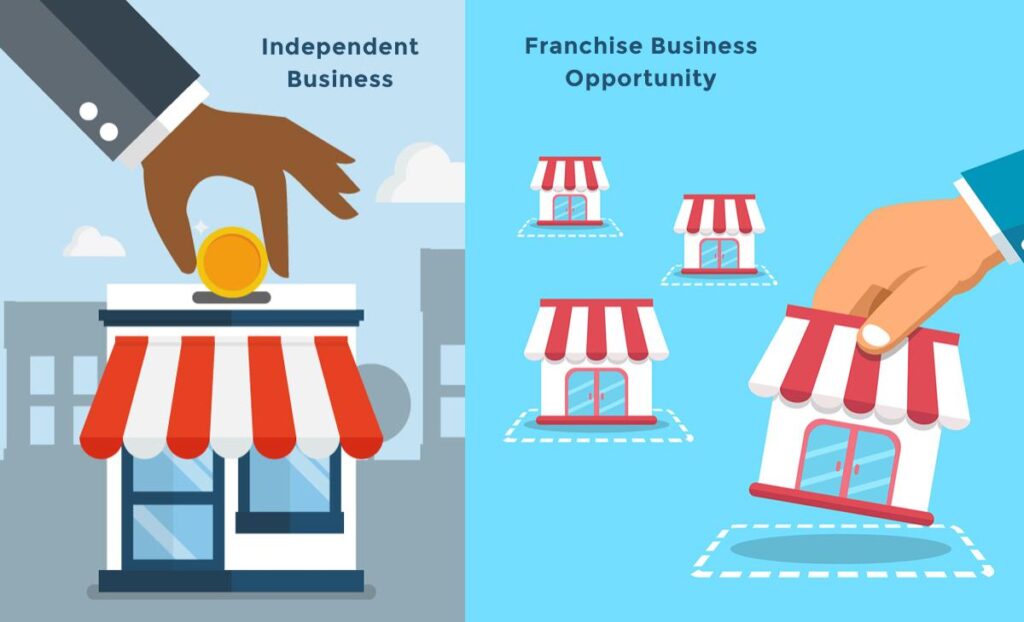
C. Risks & Rewards
- Franchise:
- Lower Risk: Franchises typically have a lower failure rate because they are built on a proven business model with an established customer base.
- Predictable Income: Franchisees benefit from brand recognition and support, making revenue streams more predictable.
- Shared Risk: Even though the risks are lower, franchisees still carry financial risk and are affected by the franchisor’s decisions.
- Starting Your Own Business:
- Higher Risk: Starting a new business from scratch involves a significant amount of uncertainty, with many new businesses failing within the first few years.
- Unlimited Potential Rewards: A successful independent business offers unlimited growth potential, with the entrepreneur retaining 100% of the profits.
- Full Accountability: The entrepreneur is solely responsible for all aspects of the business, including financial loss or failure.
Risk & Reward Pros & Cons:
- Franchise offers lower risk and more predictable income but with limited potential for massive profits due to royalty payments and brand control.
- Starting your own business is riskier but offers the potential for substantial growth and profit, especially if you build a strong brand.
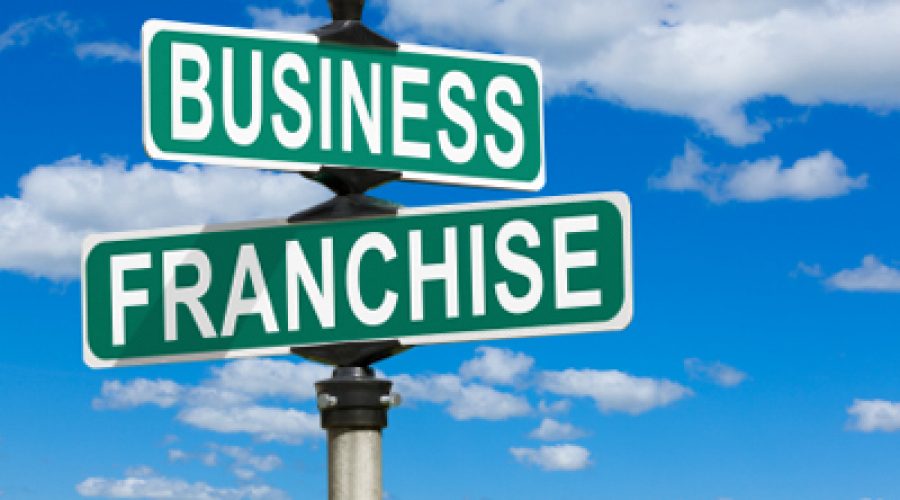
D. Training & Support
- Franchise:
- Extensive Training: Franchisors offer comprehensive training programs, covering everything from operations to marketing.
- Ongoing Support: Franchisees receive continuous support, including regular updates, operational checks, and access to a network of other franchisees.
- Starting Your Own Business:
- Self-Learning: Entrepreneurs starting from scratch must learn through trial and error, or seek external training and mentorship on their own.
- Independence in Development: While there’s limited external support, entrepreneurs have the freedom to learn and adapt at their own pace.
Training & Support Pros & Cons:
- Franchise provides significant training and ongoing support, which is ideal for first-time business owners.
- Starting your own business offers more independence but requires more self-research and learning, which can be challenging for new entrepreneurs.
Long-Term Growth Potential and Exit Strategies
- Franchise:
- Growth Opportunities: Franchisees can grow by acquiring additional franchise units as the brand expands into new locations.
- Easier Exit: Selling a franchise business is often easier due to its established brand and customer base.
- Starting Your Own Business:
- Unlimited Growth Potential: Entrepreneurs can grow their business without limitations, creating new revenue streams and expanding at their own pace.
- Harder Exit: Exiting an independent business may be more difficult, especially if the business heavily depends on the owner’s personal involvement.
Which Path Leads to Greater Growth?
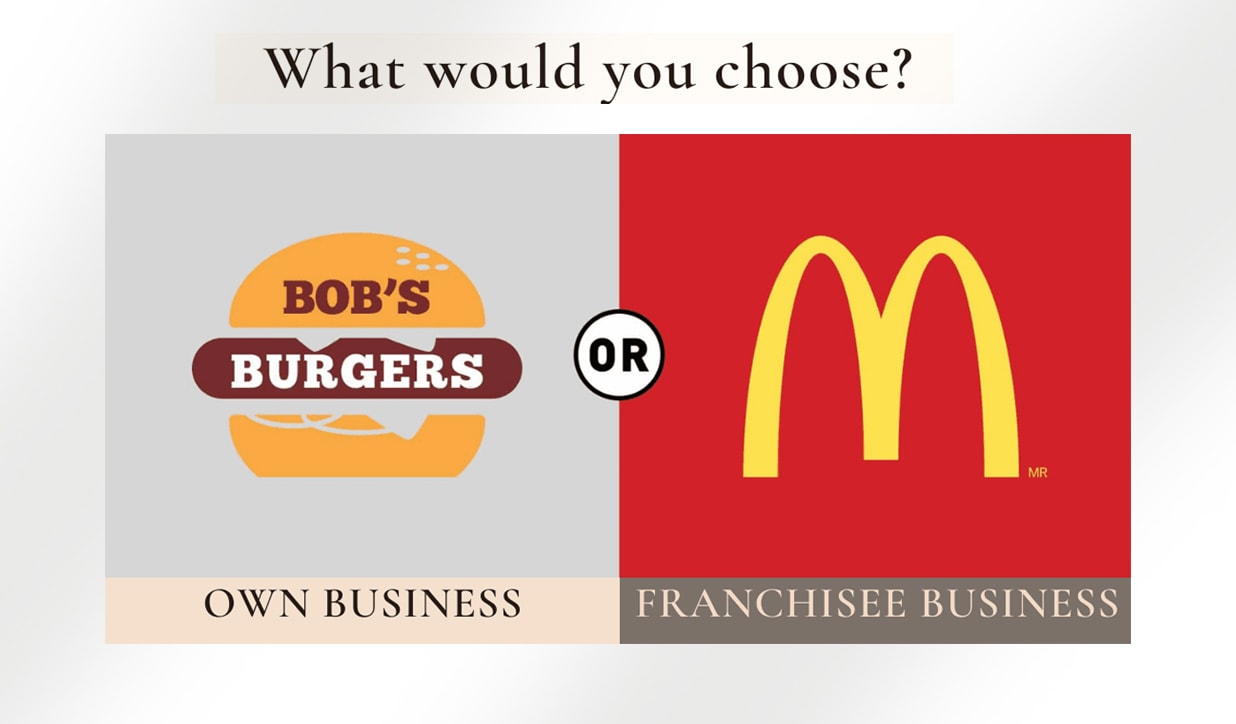
The decision to buy a franchise or start your own business depends largely on your personal goals, risk tolerance, and growth ambitions.
- Choose franchise if you prefer a lower-risk option with a proven business model, brand recognition, and ongoing support. This is ideal for those looking for an established path with strong growth potential.
- Choose starting your own business if you seek complete control, flexibility, and the opportunity to build something from scratch. Although it’s riskier, this option offers boundless potential for growth and business success.
Both options have their unique strengths and challenges, but with the right approach, either can lead to significant success and business growth. Consider your resources, goals, and long-term vision before making your decision.

